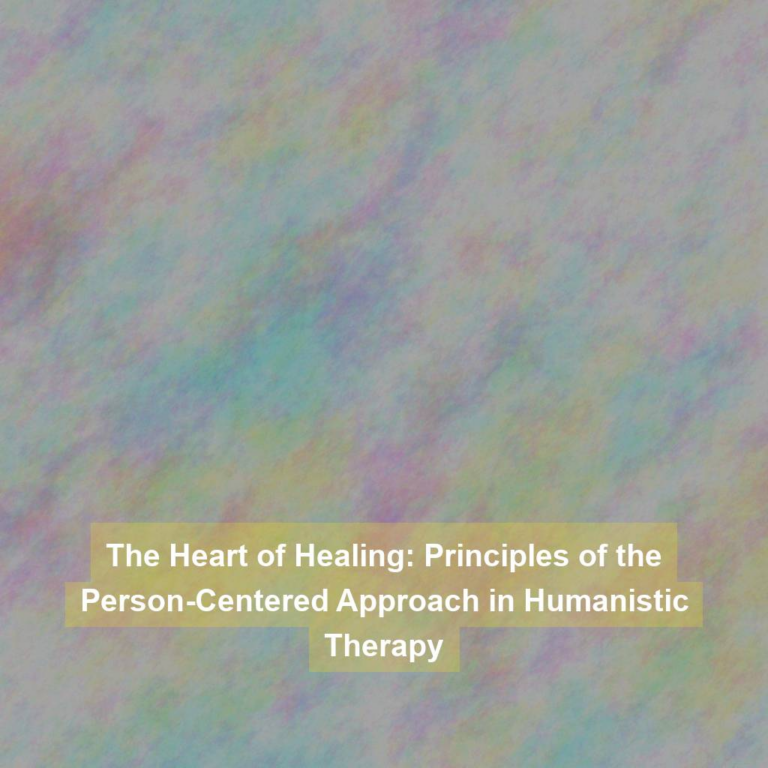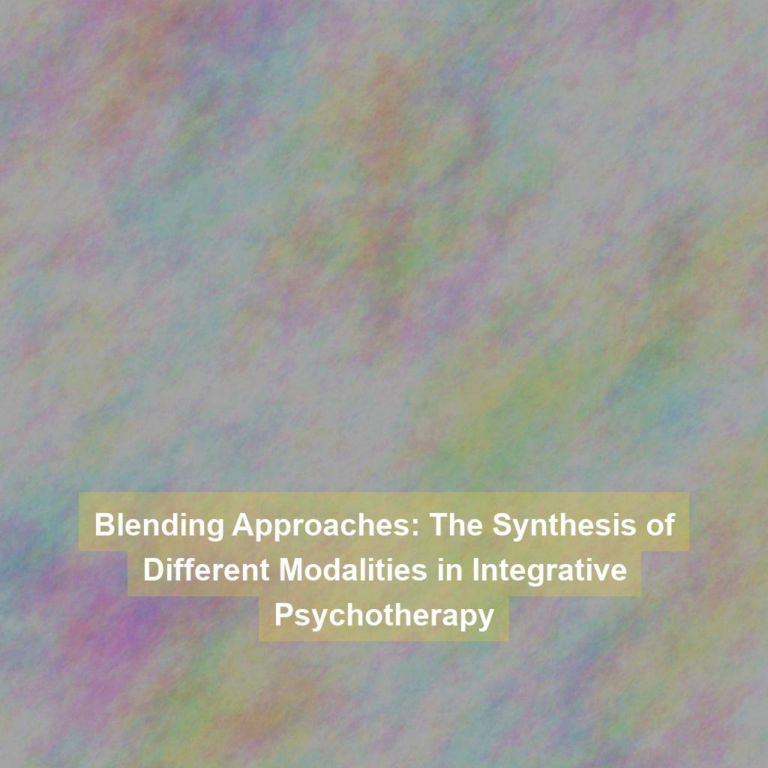You may think that your thoughts have little impact on your emotional well-being, but what if you were told that your mind has the power to significantly influence your mental health?
Cognitive Behavioral Therapy (CBT) delves into this very concept, challenging the way you perceive and respond to your thoughts, feelings, and behaviors. This evidence-based psychotherapy approach has gained widespread recognition for its effectiveness in treating various mental health conditions.
But how exactly does it work, and what role does it play in the broader field of psychotherapy?
Understanding Cognitive Behavioral Therapy (CBT)
If you often find yourself struggling with negative thought patterns and behaviors, understanding Cognitive Behavioral Therapy (CBT) can provide valuable insight and practical techniques to help you manage and overcome these challenges. CBT is a widely recognized and effective form of psychotherapy that focuses on the relationship between thoughts, feelings, and behaviors. It operates on the premise that our thoughts influence our emotions and actions, and by changing our thought patterns, we can positively impact our behavior and emotional well-being.
One of the key principles of CBT is identifying and challenging irrational or negative thoughts. Through this process, you can learn to recognize and reframe distorted thinking patterns, replacing them with more balanced and constructive thoughts. This shift in thinking can lead to a corresponding shift in emotions and behaviors, ultimately empowering you to respond to challenging situations in a more adaptive and healthy manner.
Furthermore, CBT equips you with practical skills to cope with difficult emotions and manage stress. By learning effective problem-solving techniques, relaxation strategies, and communication skills, you can develop a repertoire of tools to navigate life’s challenges more effectively. Ultimately, understanding CBT can provide you with a roadmap to cultivate a more positive and resilient mindset, leading to improved mental well-being and overall quality of life.
Core Principles of CBT
Exploring the core principles of Cognitive Behavioral Therapy (CBT) can provide valuable insights into how thoughts, emotions, and behaviors intersect and influence each other.
One of the fundamental principles of CBT is the concept that our thoughts, feelings, and behaviors are interconnected. This means that our thoughts can directly impact our emotions and actions. CBT also operates on the principle that our interpretations of events, rather than the events themselves, significantly affect our emotional and behavioral reactions.
Another core principle of CBT is the focus on the present moment and the here-and-now experiences. This means that CBT encourages individuals to pay attention to their current thoughts, emotions, and behaviors, and how they’re interrelated.
Additionally, CBT emphasizes the collaborative nature of the therapeutic relationship, where the therapist and the individual work together to identify and change negative thought patterns and behaviors. By understanding and applying these core principles, individuals can effectively learn to recognize and challenge negative thought patterns, manage their emotions, and modify their behaviors to lead more fulfilling lives.
Application of CBT in Psychotherapy
One effective way to apply the core principles of Cognitive Behavioral Therapy (CBT) in psychotherapy is by using specific techniques to help individuals identify and challenge their negative thought patterns and behaviors. This can be achieved through a variety of methods, such as cognitive restructuring, which involves recognizing and altering harmful thought patterns.
Additionally, behavioral experiments can be utilized to test the validity of certain beliefs and behaviors, helping individuals to see alternative perspectives. Another key application of CBT in psychotherapy is the use of homework assignments, where individuals practice new skills and techniques outside of therapy sessions, reinforcing their learning and progress.
Furthermore, the concept of guided discovery is employed, encouraging individuals to explore their thoughts and behaviors in a structured manner with the guidance of the therapist. These techniques aim to empower individuals to take an active role in understanding and modifying their thought patterns and behaviors, ultimately leading to positive changes in their mental well-being.
Effectiveness of CBT in Mental Health Treatment
The effectiveness of Cognitive Behavioral Therapy (CBT) in treating various mental health conditions has been extensively supported by research and clinical practice. CBT has been found to be highly effective in treating conditions such as depression, anxiety disorders, post-traumatic stress disorder (PTSD), obsessive-compulsive disorder (OCD), eating disorders, and many others. Research studies have consistently demonstrated that CBT can significantly reduce symptoms and improve overall functioning in individuals with these conditions.
In addition to its effectiveness in treating specific mental health disorders, CBT has also been shown to produce lasting results. Many individuals who undergo CBT experience long-term improvements and are less likely to experience relapses compared to those who receive other forms of treatment or no treatment at all.
Furthermore, CBT is often preferred by both mental health professionals and patients due to its structured, goal-oriented approach. The practical strategies and techniques taught in CBT sessions empower individuals to actively participate in their own treatment, leading to a sense of control and self-efficacy in managing their mental health. Overall, the evidence overwhelmingly supports the effectiveness of CBT in the treatment of various mental health conditions.
Empowering Change Through CBT
Empower change through Cognitive Behavioral Therapy (CBT) by actively engaging in structured, goal-oriented sessions that equip individuals with practical strategies and techniques to manage their mental health effectively. CBT empowers you to take an active role in your treatment, providing you with the tools to challenge negative thought patterns, develop coping skills, and modify behaviors that contribute to distress. By working collaboratively with your therapist, you can identify and reframe harmful beliefs, ultimately reshaping your mindset and improving your emotional well-being.
Through CBT, you’ll learn to recognize how your thoughts, feelings, and behaviors are interconnected, gaining insight into the impact of these connections on your mental health. By understanding these dynamics, you can proactively intervene in unhelpful patterns, fostering positive change. CBT also emphasizes skill-building, teaching you practical techniques such as relaxation exercises, problem-solving strategies, and effective communication skills. These tools empower you to navigate life’s challenges with resilience and confidence, ultimately enhancing your ability to cope with stress and adversity.
Moreover, by actively engaging in CBT, you can cultivate a sense of empowerment and autonomy over your mental health, fostering a proactive and resilient mindset that supports lasting change.
Conclusion
In conclusion, cognitive behavioral therapy (CBT) is a powerful tool in psychotherapy, empowering individuals to make positive changes in their thoughts, behaviors, and emotions.
By focusing on the relationship between thoughts, feelings, and behaviors, CBT helps individuals develop practical skills to manage their mental health and improve their overall well-being.
The evidence of its effectiveness in treating various mental health conditions makes CBT a valuable approach in the field of psychotherapy.







